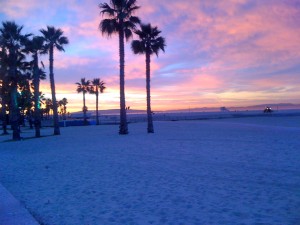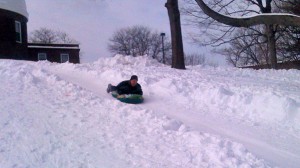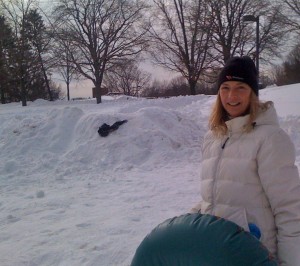I’m just back from the annual meeting of the American Association of Colleges and Universities. The AAC&U is dedicated to “making the aims of liberal learning a vigorous and constant influence on institutional purpose and educational practice in higher education.” — That’s the mission statement, and today the organization works with a wide variety of schools to develop learning outcomes, democratic and inclusive practices, and coherent curricula consistent with the evolution of the liberal arts.
My first task there was to respond to a talk by Mark C. Taylor, whose book Crisis on Campus I’d reviewed in the Los Angeles Times. Mark is a Wesleyan graduate, who taught at Williams for decades and is now Chair of the Religion Department at Columbia University. Mark calls for the creation of a postmodern university, which for him means moving from silos to networks, abolishing departments and tenure, and organizing problems-oriented teaching teams. If we don’t act now, he foresees a deepening crisis in higher education akin to the housing bubble of recent years.
I emphasized some of the key areas about which Mark and I agree. He is right on the money in attacking the powerful, long-term trends toward specialization in university culture, trends which have a decidedly negative impact on undergraduate education. At many schools this has led to a fragmentation of intellectual life, with powerful departments defending their own interests without regard to the welfare of the institution as a whole. Who is going to articulate a holistic vision for undergraduate education when only specialized success is awarded professional prestige?
I have written elsewhere on the importance of giving our students the capacity for translation, or intellectual cross-training, that will allow them to tap into multiple networks of inquiry. Unlike Mark Taylor, I do not think that abolishing tenure will help in this regard. Most schools in America have most of their classes taught by untenured faculty (often graduate students), and the result is not more freedom and breadth. Instead, the poor job conditions for these instructors seem to encourage the replication of the status quo — little innovation, much conformity to disciplinary convention. In our current political context, one in which state, federal and foundation officials are often seized with the desire to regulate public culture, the protection of academic freedom that tenure affords is crucial.
I came away from these meetings realizing how fortunate we are here at Wesleyan to have a faculty that consistently works to improve the education we offer students even as our scholar-teachers continue to help shape the professional fields in which they work. Wes has its challenges, too, including overcoming the intellectual fragmentation that often attends specialization. But we have many professors committed to this task, and that is the most important factor for building the university of the future — a university in which faculty members make student learning the priority in ways that enhance our capacity for research.





